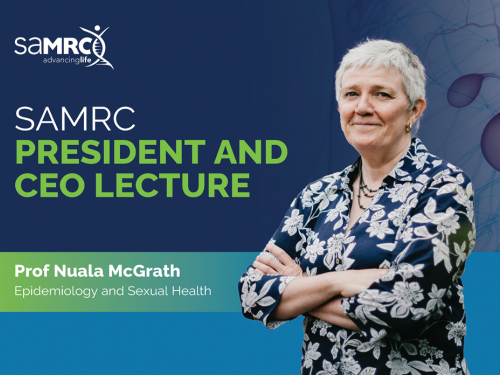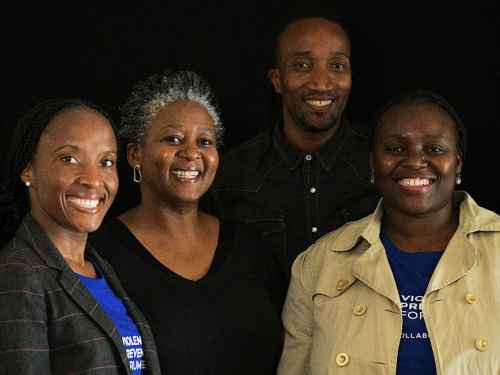On 20 February 2025, The South African Medical Research Council (SAMRC) will, on Thursday 20 February 2025, host its 11th Scientific Merit Awards to celebrate some of the finest scientific minds in health research.

 A South African Medical Research Council (SAMRC) - led qualitative study recently published in PLOS ONE reports on the performance of Quality Improvement (QI) teams working in maternal and neonatal health in South Africa. The qualitative study was part of a mixed-methods evaluation of the effectiveness of the Mphatlalatsane Project, which sought to reduce maternal and neonatal deaths and stillbirths, improve mothers’ experience of care, and strengthen health services.
A South African Medical Research Council (SAMRC) - led qualitative study recently published in PLOS ONE reports on the performance of Quality Improvement (QI) teams working in maternal and neonatal health in South Africa. The qualitative study was part of a mixed-methods evaluation of the effectiveness of the Mphatlalatsane Project, which sought to reduce maternal and neonatal deaths and stillbirths, improve mothers’ experience of care, and strengthen health services. On the 20th of November, SAMRC President and CEO, Prof Ntobeko Ntusi hosted a lecture at the Medicina campus in Cape Town. The event was opened by Prof Ntusi, who welcomed and introduced the speaker, Prof Nuala McGrath who presented “Diabetes Together: a couples-focused intervention to support self-management of Type 2 Diabetes in South Africa”.
On the 20th of November, SAMRC President and CEO, Prof Ntobeko Ntusi hosted a lecture at the Medicina campus in Cape Town. The event was opened by Prof Ntusi, who welcomed and introduced the speaker, Prof Nuala McGrath who presented “Diabetes Together: a couples-focused intervention to support self-management of Type 2 Diabetes in South Africa”. As South Africa observes the annual 16 Days of Activism For No Violence Against Women and Children from 25 November – 10 December under the theme “Towards 30 years of the Beijing declaration and platform for action: unite to end violence against women”, it is an opportunity to reflect on the collective commitment to ending violence in all its forms.
As South Africa observes the annual 16 Days of Activism For No Violence Against Women and Children from 25 November – 10 December under the theme “Towards 30 years of the Beijing declaration and platform for action: unite to end violence against women”, it is an opportunity to reflect on the collective commitment to ending violence in all its forms. Diabetes has become one of South Africa’s most pressing public health issues. It is a leading cause of death and a significant source of morbidity. In 2021, it was estimated that around 4.6 million South African adults between 20 and 79 years old were living with diabetes.
Diabetes has become one of South Africa’s most pressing public health issues. It is a leading cause of death and a significant source of morbidity. In 2021, it was estimated that around 4.6 million South African adults between 20 and 79 years old were living with diabetes.
